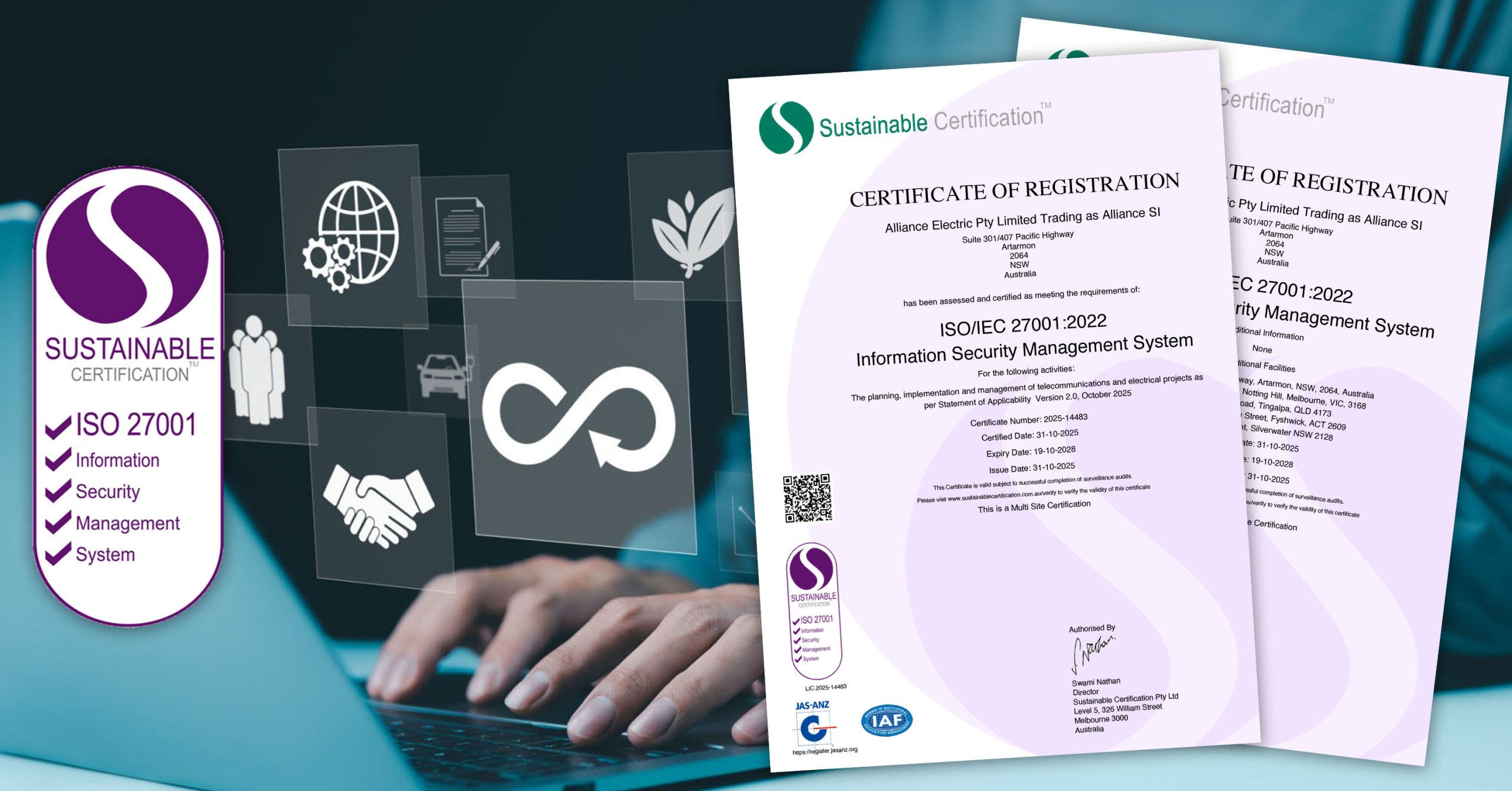Alliance SI has achieved certification to ISO 27001:2022, the international standard for Information Security Management Systems (ISMS). This certification extends our existing ISO 9001 (Quality), ISO 14001 (Environmental), and ISO 45001 (Occupational Health and Safety) accreditations, strengthening the framework that underpins every project we deliver.
For customers working in high-performance and compliance-driven environments, ISO 27001 provides assurance that information and data are protected through disciplined, tested controls. It builds on the systems that already govern our quality, safety, and environmental performance, now adding a dedicated layer of information-security governance across all operations.
What this means for our customers:
- Enhanced data protection – safeguards for customer information and project data across all systems and delivery stages.
- Stronger risk management – structured processes to identify, assess, and mitigate security risks before they impact operations.
- Assured compliance – alignment with recognised international standards and regulatory obligations across critical sectors.
Overall. the ISO 27001 achievement provides greater confidence that customer information and operations are managed with the same care, reliability and attention to detail that define every project we deliver.
This latest certification also reflects the dedication of our people and the strength of our culture – one that values continuous improvement and upholds high standards across every project. It brings together our systems for quality, safety, environment, and information security to form a single, dependable framework our customers can depend on.
ISO 27001:2022 – Information Security Management
ISO 27001 is the globally recognised benchmark for information security management. It:
-
Establishes a systematic approach to securing sensitive data
-
Identifies and mitigates information-security risks across the business
-
Implements controls to protect confidentiality, integrity and availability of information
-
Supports regulatory compliance across sectors
-
Drives continuous improvement in data protection and cyber-risk management

